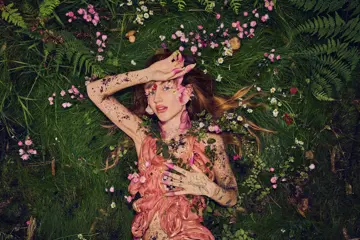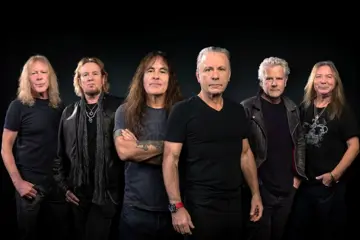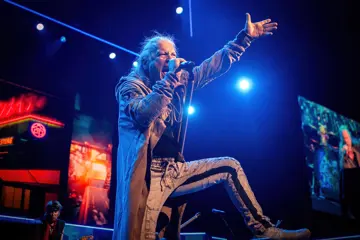The WIP PROJECT is a free online database of female, gender non-conforming (GNC), non-binary, POC and minority dance music artists and industry professionals. Designed to unite the wider dance community, it aims to improve diversity and equality through promoting and recommending talents within the Australian industry.
Founded by respected DJs and creatives DJ SARAH (Sarah Morgan from IN2STELLAR) and FLOSS DOGG (Florence Brown from Primer), the project began as a Google spreadsheet which catalogued a huge list of female and GNC producers and DJs from around Australia. The list expanded over twelve months and with the technical expertise of Florence, the spreadsheet grew into a fully-formed website. Not only does it include producers and DJs, but it also highlights categories of involvement and behind-the-scenes roles with full contact details and genres to help bookers get in touch.
Over the past decade, gender equality within the music has been a movement making ground within Australia however, female, non-binary and GNC artists are still disproportionately represented in the industry. According to studies by Triple J Hack, while the gender gap within the Australian music industries might be shrinking, there is still a gender imbalance across Australian venue and festival lineups, which we also recently addressed. Of the five festivals they surveyed, only 36% per cent of acts had at least one woman. The WIP Project is here to prove the diverse range of female and GNC artists, stating that "we wholeheartedly believe that until there is equality in the opportunities that members of the community are given, we must take conscious steps to uplift female and GNC talent."
We spoke to Sarah and Floss of the WIP Project to talk more about their determination to prove the diversity in the Australian music industry.
How did you begin working together? How long have you been working on WIP for?
Floss: I was starting up my Creative Agency, FLSY Studio, and I got in touch with Sarah to collaborate on upgrading her spreadsheet to a website where users could submit their own profiles. We met up for a wine and the ideas for how the site should work really started coming together. We’re still updating and improving the site and experience every week. The site will always be a beta, we want to perfect the experience and mission as much as possible.
Don't miss a beat with our FREE daily newsletter
Sarah: For me, this project has been in the pipeline for over 2 years now. It was a pretty organic process that began with an Instagram post I made listing a bunch of female DJs in the hope that the bookers continuously booking all male line ups at a club I frequented would see. I ended up chucking them all in a spreadsheet after being asked again and again for the list, and after struggling with the maintenance decided to explore building a website. The project continuously fell to the backburner, but once Floss hit me up about turning the spreadsheet into a website it was all guns blazing. She’s a multi-talented creative who brought so many skills to the table and after one meeting pre-covid, we managed to launch the site shortly after.
How did you come to recognise that this is an important tool for the industry?
Floss: We wanted to come up with a really visual tool to illustrate the vast amount of women and gender non-conforming people in the industry. Since the site going live and now having our WIP Project Community Facebook Group, it’s become apparent that it’s also a really great tool for women coming together to support one another and collaborate on creative projects too.
Sarah: The spreadsheet was a really great proof of concept. Although there are other resources out there, I saw that people were consistently viewing and sharing the spreadsheet, and realised that there was still room for another resource like WIP. I initially created the resource for myself to share, as I would constantly get caught up in exhausting Facebook comment threads trying to explain to male bookers that there are enough women to book if you just look harder. We were fed up of having round about conversations with people not willing to accept that there’s an issue here, and wanted to put my energy into creating a resource that I could share instead of tapping out a 400 word essay in response to comments like “all the women were unavailable” or “most DJs/Producers are men”. If this database exists it completely debunks the common myth and excuse that there are just “not enough women to book”.
Can you give a run-down of the categories available for submission?
Floss: The Operation categories are all-encompassing; DJ, Producer, Live Act/Musician, VDJ/Visuals, Designer, Install Artist, Photographer, Door Person/Host, Sound Engineer, Label Boss, Agent/Manager, Promoter/Booker, Crew/Production.
We wanted to go beyond just having performers on the site, and broaden the scope to all areas of the industries to have a place for everyone to be visible. Often the people working behind the scenes don’t get promoted like the names on the posters do. Gender equality doesn’t stop at the lineup, inequality is systemic and needs to be addressed at every level in the industry.
Are there any other global/local databases that you have framed WIP around?
Sarah: Yeah, there’s a bunch of other great resources available out there. I did a lot of research into other sites, and why people might not be using or sharing them as often as necessary. Although the database concept isn’t particularly new, we really wanted to focus on the execution and functionality of the site, and making sure that it actually gets used. Listen is an incredible organisation that promotes diversity in music in many ways, including through their “Listen Lists” and definitely inspired me initially.
Floss: Femdex is definitely one that I’ve been aware of for a long time. It’s curated by the site admins and is mostly text based. We wanted to expand on the idea by putting faces to the names of all the operators, and offering a bit more information on the profile pages.
What feedback have you received from the project?
Sarah: The feedback has been super positive, which shows how keen most people are to contribute to positive change. We’ve had a lot of people reach out and comment on the practicality of the site which was one of our main focuses. We’re always open minded and looking for more feedback, and have been adapting and updating the site constantly to make it as useful, engaging, and inclusive as possible.
What do you hope that the WIP database will achieve for the dance music industry?
Floss: My goal is for every woman and GNC person in the industry across Aus & NZ to have their profile on display. No matter their level, I want to show the world our vast and diverse array of skills. I hope that this will empower people to book and hire the best lineups and teams possible for their projects.
Sarah: One of our main focuses is to equip people with a practical tool they can have up their sleeve for when these conversations inevitably arise, as we have seen time and time again. By no means is this the absolute answer but we’re hoping to have a positive impact on the dance music industry by providing just another resource that can be used. We still have a long way to go, and gender diversity is just the tip of the iceberg when working towards achieving a truly diverse dance music industry that equally represents Black, Indigenous, People of Colour, members of the LGBGTQI+ community, people with disabilities and all other marginalised communities.
You can find out more about WIP Project here.
Words by EVIE WEILY
Image by Fashion Journal
SEE ALSO
IT'S 2020 - WHY ARE STILL SEEING LINEUPS WITH SUCH POOR DIVERSITY?
















